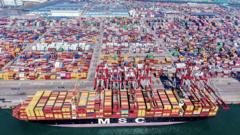In recent elections, Friedrich Merz has emerged as Germany's likely next chancellor amid notable challenges. Despite his victory, public sentiments reflect a lack of enthusiasm for his leadership, alongside critical national issues such as a stagnating economy and controversial migration policies. These factors set the stage for Merz as he steps into a role where his risk-taking approach might serve as both a contentious and strategic asset in confronting external pressures, particularly with a volatile international landscape dominated by President Trump’s frequently aggressive stances toward Europe.
**Friedrich Merz: Navigating Leadership Challenges Ahead of Germany's Future**

**Friedrich Merz: Navigating Leadership Challenges Ahead of Germany's Future**
As Friedrich Merz prepares to assume the role of Germany’s chancellor, he faces significant hurdles stemming from popular dissent and a struggling economy, yet he may leverage his bold style to reclaim Europe's influence on the global stage.
With surveys indicating widespread national anxiety around economic stability and societal divisions, the key question remains whether Merz can fulfill voters' demands for transformative change while managing opposition within his own ranks and ensuring stability across Europe.
As he assumes the chancellorship, Merz's leadership will be tested both domestically in addressing urgent economic fears and externally on the diplomatic front, presenting an opportunity for Germany to regain a prominent role in European and international affairs.
As he assumes the chancellorship, Merz's leadership will be tested both domestically in addressing urgent economic fears and externally on the diplomatic front, presenting an opportunity for Germany to regain a prominent role in European and international affairs.





















